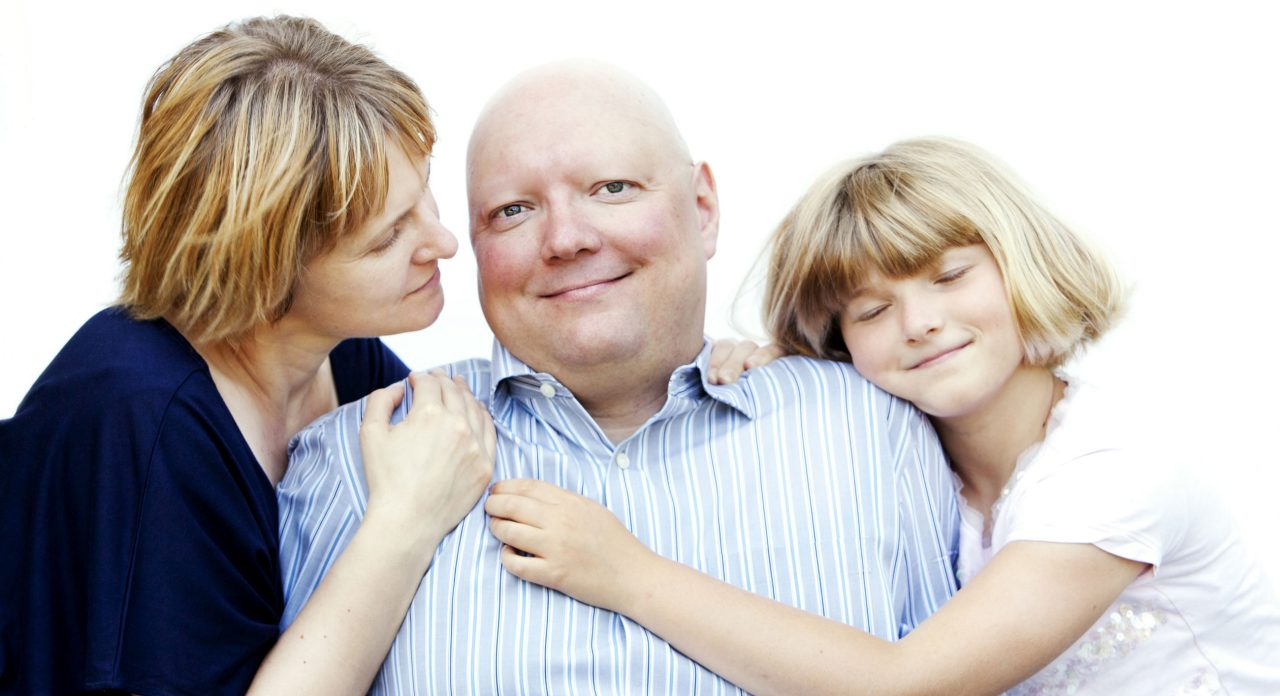Caring for Someone with Lung Cancer

If you're caring for someone with lung cancer, learn all you can. Knowledge builds confidence, but be sure to avoid information overload. Here's what you should know.
Many people know the risks of smoking. Yet they keep smoking and wind up with lung cancer, the leading cause of cancer deaths. Each year, more people die of lung cancer than of colon, breast, and prostate cancers combined. Most of these lung cancers can be prevented. Smokers can quit smoking, and people can stay away from secondhand smoke.
YOU MIGHT ALSO LIKE: How to Quit Smoking
Lung cancers are so fatal because they tend to be discovered late, when they are hard to cure. Current or former smokers should consider asking for a new test, a low-dose CT scan, which can catch cancer earlier.
Lung cancer may not be a quick death sentence. About 540,000 Americans alive today have been diagnosed with lung cancer at some point, according to the American Lung Association. Quitting smoking has been shown to help people with lung cancer live longer, even if the cancer has spread, and lowers the chance of a second lung cancer.
As the disease advances, cancer in one lung spreads to the lymph nodes (considered “Stage II” or “Stage III,” depending on whether it spreads to nodes in the middle of the chest).
It then can spread to the other lung, to fluid around the lungs, or to the liver or other organs (“Stage IV”). At Stage IV, about only 1 percent of patients survive for five years.
Your doctor may recommend surgery, radiation, chemotherapy, other targeted therapies, or immunotherapy — alone or combined.
Caring for someone with lung cancer
As the caregiver of someone with lung cancer, let your loved one’s doctors know if you see side effects, as they often can be avoided or treated. Common side effects among cancer patients include:
- Blood clots
- Problems with memory and concentration during chemotherapy (often called “chemobrain”)
- Diarrhea
- Fatigue
- Nausea and vomiting
- Mouth sores
- Pain
- Tingling
- Weight loss or gain
Learn all you can. Knowledge builds confidence. But avoid information overload. Looking at lung cancer statistics can leave you anxious and despondent. Statistics are numbers about thousands of people. Each case is unique.
Keep asking the healthcare team about the current prognosis for your loved one and any other questions you may have. A patient’s prognosis can change over the course of treatment, especially with the approval of new treatments or participation in clinical trials.
You will most likely need to help your loved one through treatment, with a long list of chores — from completing insurance and legal paperwork to driving to doctor appointments and fielding phone calls.
Along with everyday tasks, you may need to help your loved one with basic healthcare, such as:
- Giving medication
- Managing side effects of both the cancer and treatment
- Helping with palliative care
Your largest challenge may be providing emotional support.
Be sure that you both have a healthcare proxy, a durable power of attorney, and a living will. Let family and friends help you. Keep a list of regular chores and assign them among people in your inner circle. For smaller chores, be ready to make suggestions if someone says, “How can I help?”
Lung cancer resources
- American Lung Association provides information on lung cancer and coping with breathing problems, side effects, and physical activity.
- GO2 for Lung Cancer offers an information line (1-800-298-2436) as well as a phone buddy program and referrals to support groups.
- Lungevity.org matches patients and caregivers with volunteers who have a similar history, for email or phone support.
- CancerSupportCommunity provides a helpline (1-888-793-9355) as well as online chat support and online, professionally led support groups for caregivers and patients.
One-on-one support for all cancers
- Imerman Angels (1-877-274-5529) partners a cancer patient with someone who has beaten the same type of cancer.
- Cancer Hope Network (1-877-467-3638) also matches cancer patients and survivors with a similar kind of cancer.
- The 4th Angel Program (1-866-520-3197) matches cancer patients and caregivers with a coach, working by phone or email.
Updated:
February 20, 2023
Reviewed By:
Janet O’Dell, RN